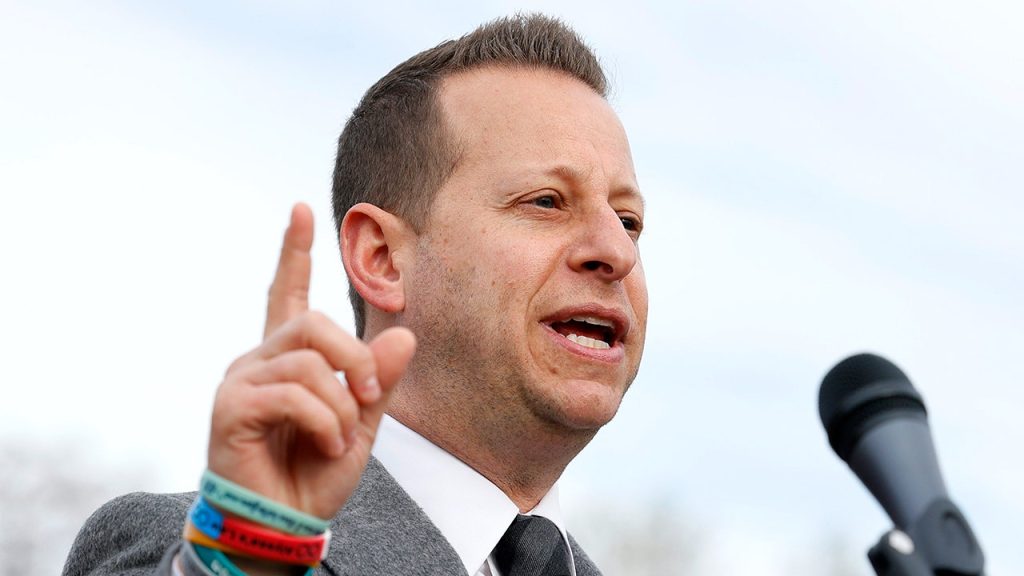In recent developments concerning the Congressional DOGE caucus, Rep. Jared Moskowitz of Florida has proclaimed the group effectively “dead,” citing its lack of activity and meaningful engagement. After a mere two meetings over five months, Moskowitz criticized the group for its deficiencies in addressing core issues related to its agenda. Conversely, co-chair Rep. Aaron Bean of Florida dismissed these claims, asserting that the caucus’s work is just beginning. This exchange underscores the ongoing tension surrounding the congressional initiative aimed at legislative reforms involving cryptocurrency.
| Article Subheadings |
|---|
| 1) Overview of the Congressional DOGE Caucus |
| 2) Moskowitz’s Critique of the Caucus |
| 3) Bean’s Defense and Future Plans |
| 4) Implications for Cryptocurrency Legislation |
| 5) Public Reaction and Future Prospects |
Overview of the Congressional DOGE Caucus
The Congressional DOGE Caucus was founded to address issues associated with cryptocurrency, particularly through the lens of accountability and efficiency in government spending. It includes members from various states, rallying around the potential of digital currencies like Dogecoin to contribute to fiscal reforms. Established with enthusiasm, the caucus was envisioned as a bipartisan initiative aimed at exploiting the potential advantages of innovative financial technologies while ensuring government expenditure is closely monitored. This initiative received a sense of urgency in the context of rising concerns over federal spending and the necessity for comprehensive reforms that resonate with contemporary economic paradigms.
Moskowitz’s Critique of the Caucus
Rep. Jared Moskowitz did not hold back when expressing his views on the state of the caucus, asserting that it has devolved into a “defunct” assembly. In a candid assessment, he remarked, “We haven’t met in months. We only had two total meetings in five months.” The congressman emphasized the lack of involvement in substantive initiatives and criticized the reliance on Elon Musk for leadership rather than collaborative efforts by congress members. Moskowitz argued that this lack of engagement and accountability rendered the founding purpose of the caucus ineffectual, with a sentiment that all progress had been hindered by governance issues. His statements reflect a broader concern among some lawmakers regarding the efficacy of legislative bodies when it comes to embracing new financial technologies.
Bean’s Defense and Future Plans
In stark contrast to Moskowitz’s criticisms, Rep. Aaron Bean defended the caucus’s trajectory, asserting that the caucus is far from a failure. “Congress can enact long-term change, and our 100 committed members and eight specialized working groups are working to codify critical reforms,” he stated. Bean’s comments suggest optimism about future legislative steps aimed at unlocking savings for American citizens. He highlighted the ongoing preparations for legislation that would potentially streamline federal spending. The divergence in perspectives between Moskowitz and Bean raises questions about the effectiveness of the caucus in bridging the gap between innovative financial solutions and the legislative process.
Implications for Cryptocurrency Legislation
The rift within the Congressional DOGE Caucus brings to light significant implications for cryptocurrency legislation in the United States. As the dialogue around digital currencies continues to evolve, the effectiveness of such legislative bodies in influencing the broader economic landscape cannot be underestimated. With key players like Musk involved in advocacy efforts, the capacity for the caucus to harness cryptocurrency’s potential while enacting enforceable laws will be critical. It remains to be seen whether internal tensions can translate into momentum that positively influences the regulatory framework around digital currencies at large. In a marketplace characterized by volatility, those advocating for crypto reform must consider the balance between innovation and responsible governance.
Public Reaction and Future Prospects
The public response to the shifting dynamics of the DOGE Caucus has been mixed. Some constituents express concern over policymakers’ ability to establish effective guidelines for cryptocurrencies amid rampant speculation and financial instability. On the other hand, crypto enthusiasts view the caucus as an opportunity for transparency and reform in a traditional fiscal system that has been sluggish to respond to technological advances. Citizens are calling for clarity and more regular updates from their representatives regarding the caucus’s future direction and legislative initiatives. Furthermore, the future of the DOGE Caucus now hangs in the balance as its leadership navigates internal conflicts and public expectations in addressing the ongoing complexities of digital currencies.
| No. | Key Points |
|---|---|
| 1 | Rep. Moskowitz criticizes the DOGE Caucus as ineffective and inactive. |
| 2 | Caucus co-chair Rep. Bean defends the group’s future initiatives. |
| 3 | Concerns about the ability of Congress to legislate effectively in the cryptocurrency space. |
| 4 | Tension between the needs for innovation and responsible governance. |
| 5 | Public reaction reflects a desire for clarity and direction from lawmakers. |
Summary
The recent comments from both Moskowitz and Bean highlight the contrasting views on the effectiveness and future of the Congressional DOGE Caucus. As the debate surrounding cryptocurrency legislation continues to intensify, it is clear that internal disagreements may impact the caucus’s ability to fulfill its original mission. Stakeholders and the public alike are keenly observing how this situation unfolds, as it holds significant implications for the future of digital currency governance and legislative oversight in the United States.
Frequently Asked Questions
Question: What is the purpose of the Congressional DOGE Caucus?
The Congressional DOGE Caucus was established to focus on issues surrounding cryptocurrency, particularly in relation to enhancing accountability and efficiency in government spending.
Question: Why did Rep. Jared Moskowitz declare the caucus “dead”?
Rep. Moskowitz criticized the caucus for its inactivity, stating it had only held two meetings in five months and lacked meaningful involvement in its initiatives.
Question: How did Rep. Aaron Bean respond to Moskowitz’s comments?
Rep. Bean defended the caucus, claiming it is just getting started and that multiple working groups are actively preparing legislation aimed at reforming federal spending.


